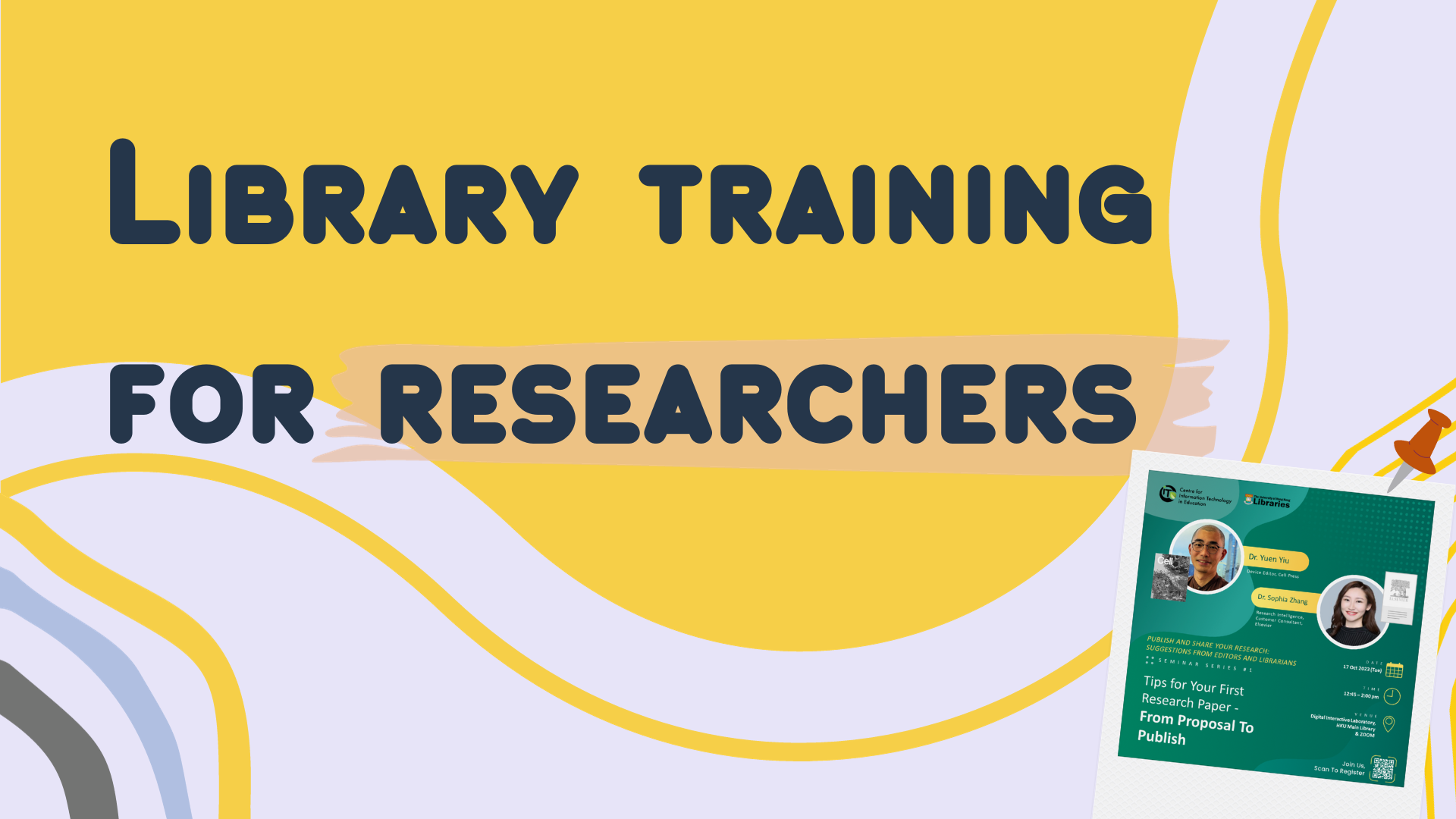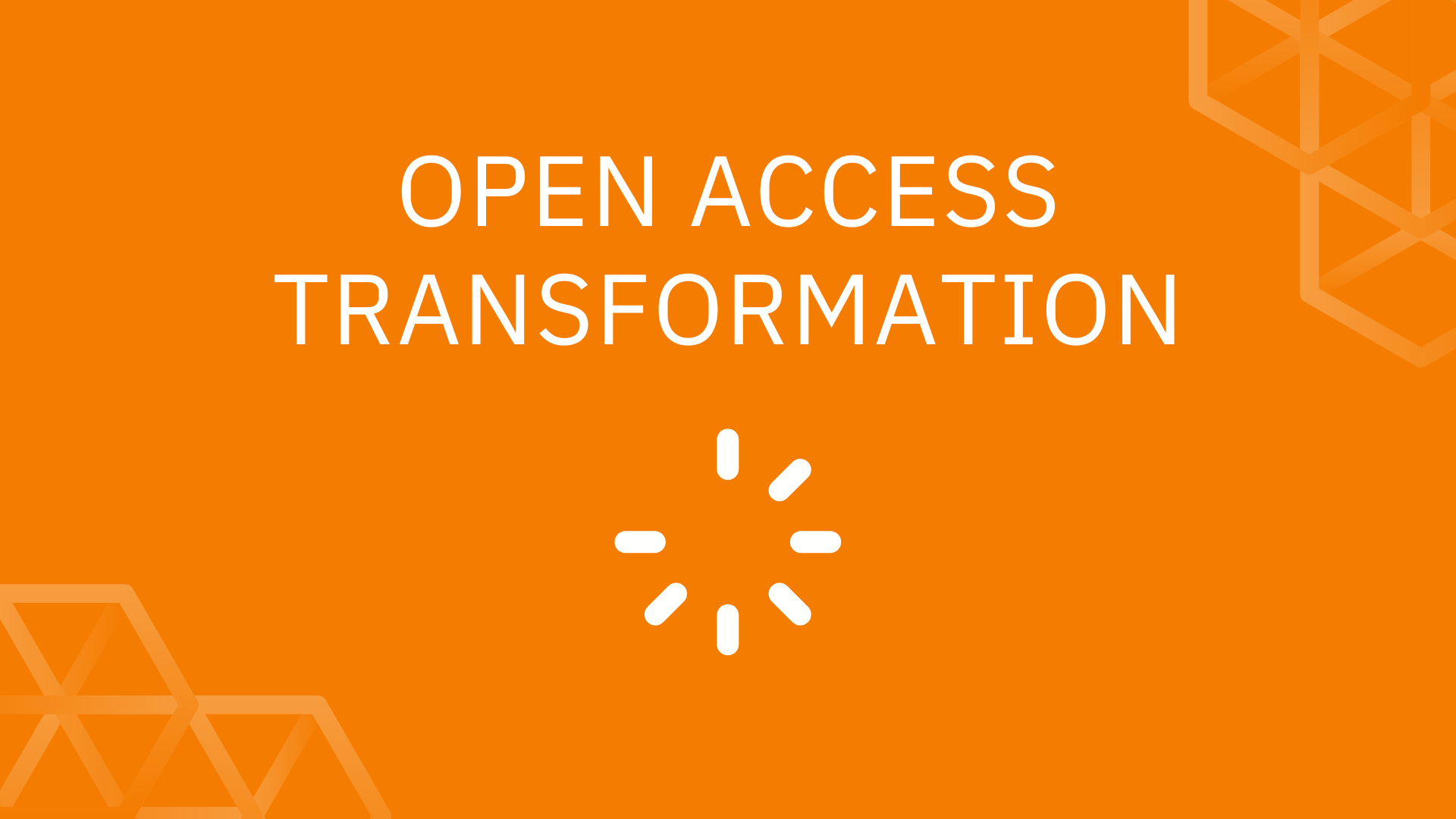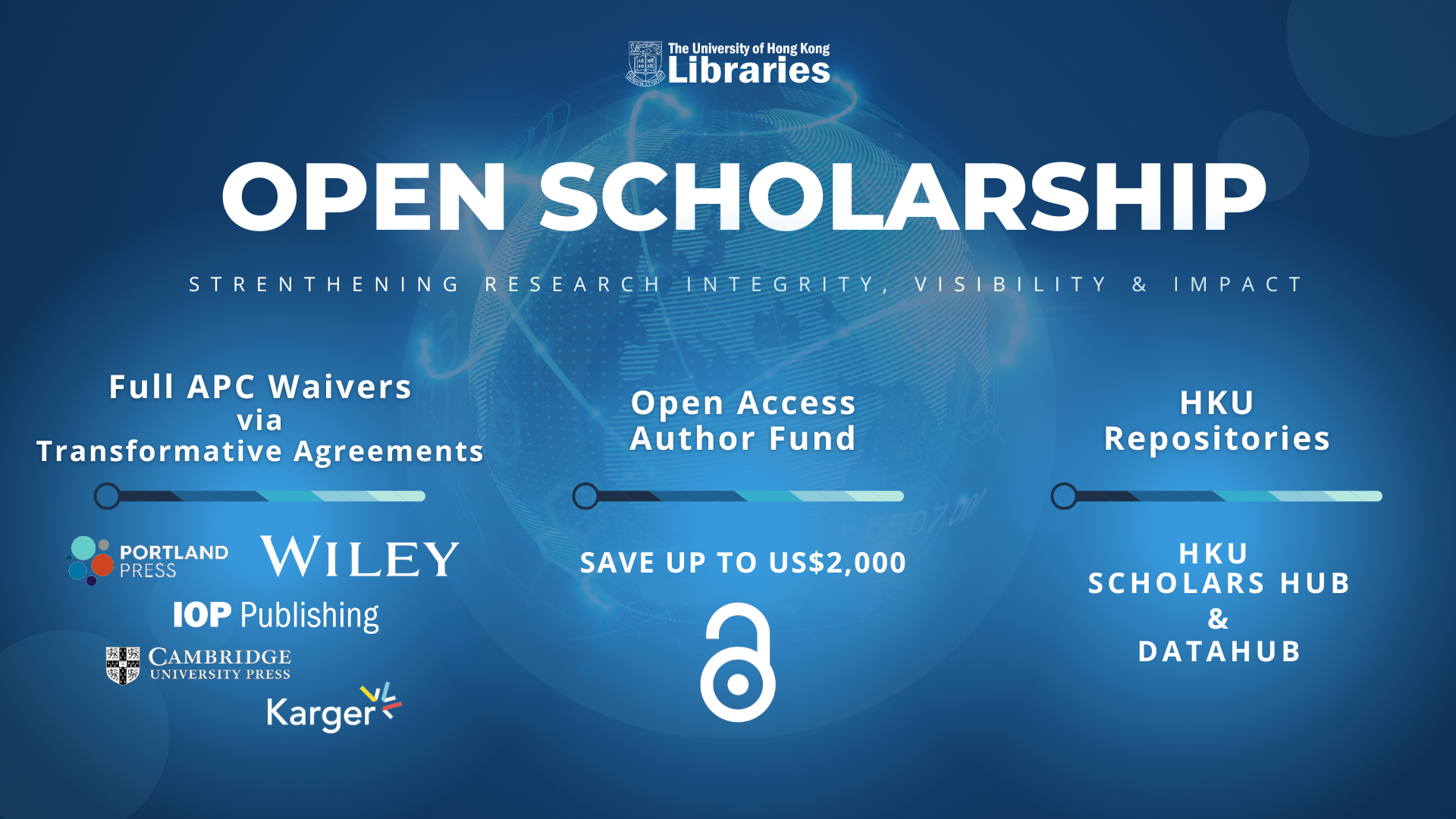Tag: open access publishing

Open Access in Progress: An Overview of Participation of HKU Authors in Open Access Publishing
Open access, a key element of open science, has become an emerging trend in recent years. Noted that open science practices, which foster openness, transparency, and inclusiveness, are already in place worldwide, the UNESCO Recommendation on Open Science (2021) called for promotion of a common understanding of open science, associated benefits and challenges, as well…
Read More
Celebrate the Spectacular Success of Open Access Week 2023 at HKU
We are overjoyed to share the tremendous success of Open Access Week 2023 at HKU Libraries. Please join us in celebrating this remarkable achievement. It is still not too late to revisit the webinars and join a quiz to test your knowledge afterwards! Scroll down for highlights of the event. Open Science 101 A webinar…
Read More
Celebrate the Open Access Week 2023 with HKU Libraries
The International Open Access Week is organized by SPARC in partnership with the Open Access Week Advisory Committee every year, aiming to provide an opportunity for the academic and research community to learn what the potential benefits of Open Access (OA) are, to share what they have learned or their own experience engaging in Open…
Read More
Publish and Share Your Research: Suggestions from Editors and Librarians Seminar Series
The Libraries is co-organizing a series of seminars with CITE (Centre for Information Technology in Education, Faculty of Education, The University of Hong Kong) to provide researchers with useful advice on publishing your research. Eight seminars on various topics by journal editors and librarians will be held in this academic year. No matter an early…
Read More
Breaking Down Barriers: Transformative Agreements Bringing Open Access to Research
Transformative agreement A transformative agreement is a type of open access publishing agreement that seeks to transform the traditional subscription-based model of scholarly publishing into a more sustainable and equitable system. This new model includes two main components: “Read” and “Publish”. “Read” refers to the subscription fees to access journal articles published behind a paywall,…
Read More
Transforming Open Access: Report of the 16th Berlin Open Access Conference
The Conference From 6-7 June 2023, representatives of research communities from 38 nations and six continents gathered at the 16th Berlin Open Access Conference (B16) hosted by the Max Planck Society. The purpose of the conference was to gather global actors in discussion of viable strategies to transform scholarly publishing from the long adopted traditional…
Read More
An Impactful Initiative: A Summary of HKU Libraries Open Access Author Fund in 2022/23
The HKU Libraries Open Access Author Fund, a key initiative of the Libraries to support open access by HKU researchers, has been run for the first financial year. Join us in celebrating success with a few outcome snapshots. Applications In the financial year 2022/23, the Fund supported 84 journal articles authored by HKU scholars and…
Read More
A Step Forward Towards Open Access: The RGC Publication Gateway
The concept of Open Access (OA) in scholarly research community seeks collaborative efforts from different stakeholders to grant free and open online access permanently to academic information, such as journal article publication and research data, etc. As a major academic research funder in Hong Kong, the Research Grants Council (RGC) revealed its 5-year roadmap of…
Read More
Avoid Falling Prey to Predatory Journals
Predatory journals The emergence of predatory journals (fraudulent, deceptive, or pseudo-journals), journals with deceptive and dishonest practices, has been reported in recent years [1-4]. The journals falsely claim to be offering peer review and publish all articles, regardless of their research rigor, in exchange for a fee. Predatory journals exploit the open-access model in which…
Read More
HKU Libraries Supports Open Scholarship
HKU Libraries commits to promoting Open Scholarship, which includes enabling open access (OA) to research publications, research datasets, metadata, along with research workflows and other types of outputs. We believe Open Scholarship principles can strengthen research integrity, increase visibility, and enhance the impact of the University. Let’s have a look on how the Libraries supports…
Read More